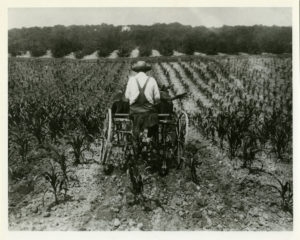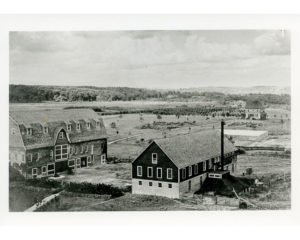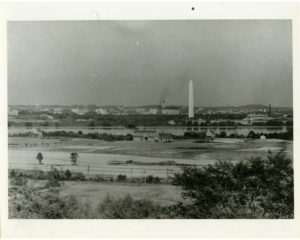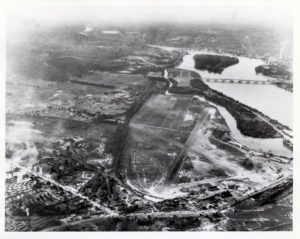Did you know that Arlington was at the forefront of experimental farming in the early 20th Century?
In 1900, Congress transferred 400 acres of land along the Potomac near Ft. Myer to the Department of Agriculture in order to create an experimental farm for plant testing, and the improvement of plants and cultivation.
A lot of fascinating and far-reaching work was conducted at the Experimental Farm over the next forty years:
- The Farm naturalized over 100,000 types of foreign plants for domestic use, using seeds collected from Americans traveling aboard on governmental or private missions. Soybeans are one of the best-known crops to be introduced this way.
- When a plant disease threatened to wipe out the domestic sugarcane industry in the 1920s the Farm led the way in developing immunity to this blight, which ultimately resulted in the rebuilding of the sugarcane industry.
- One of the more unusual examples of the Farm’s experiments involved grasses for golf greens. Before WWI the country’s golf courses were almost entirely dependent on German grown seed for their grasses. When the supply was cut off by the war, golf courses throughout the country contributed funds for experiments at Arlington to develop new domestic varieties.
With the development of Arlington National Cemetery and the construction of Memorial Bridge there was pressure to relocate the farm. In 1932 much of the farm’s work was shifted to Beltsville, MD.
By 1941 the remainder of the property had been transferred to the War Department for use in the National Defense Program.
To see more items like these, or to learn more about Arlington's history, visit the Center for Local History on the first floor of the Central Library.
Do you have a question about this story, or a personal experience to share?
Use this form to send a message to the Center for Local History.
Center For Local History - Blog Post Message Form
Do you have a question about this story, or a personal experience to share? Use this form to send a message to the Center for Local History.
"*" indicates required fields



